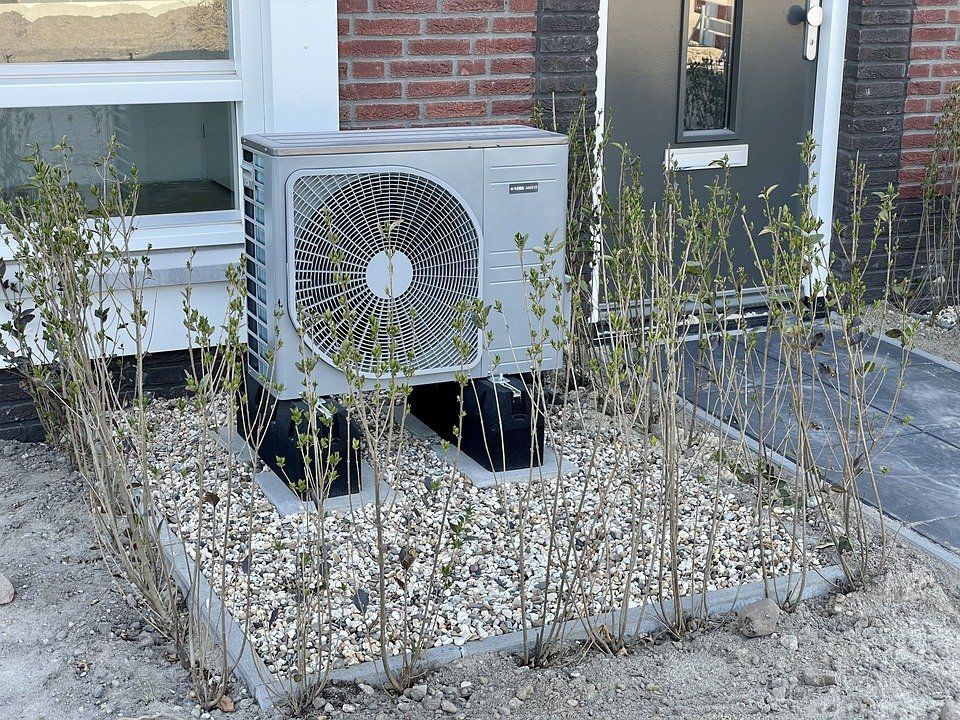
The heat pump is one of the most versatile pieces of household equipment. A heat pump can heat your home in winter and cool it in summer.
To heat your home, your heat pump extracts heat from the air outside your home. The refrigerant line carries the extracted heat to the compressor, which then transfers it to your indoor air. When it’s cooling, your heat pump transfers heat from your indoor air to the air outside your home and returns cool air to the inside.
There are several benefits of heat pumps. Unlike many other traditional heating and cooling systems, heat pumps do not need to burn fuel to produce heat. Instead, they rely on electricity and are more efficient than many conventional heating and cooling systems.
Since they don’t burn fuel, heat pumps are safer than combustion-based heating systems. They are low maintenance and do not emit greenhouse or other harmful gases.
One of the most important things that will impact the performance of your heat pump and its lifespan is how it was installed.
Incorrect installation can result in issues related to performance, durability, and reliability. A heat pump that wasn’t installed correctly is more prone to breakdowns. Installation mistakes can even void the warranty.
When installing a heat pump, watch out for these installation mistakes.
Low Refrigerant
One of the most common and concerning heat pump installation mistakes that contractors commit is not putting in enough refrigerant. Refrigerant absorbs heat from your indoor air to keep it cool. If the refrigerant level is too low or you use the wrong blend while installing your heat pump, it won’t cool your home properly and can become damaged. In addition to causing performance issues, refrigerant loss can result in ice formation on the coils.
Make sure there are no leaks around the seals where the refrigerant lines meet other system components or your system can lose refrigerant. Too much refrigerant is as bad as too little. Excess refrigerant can result in performance issues and lead to serious compressor damage. The evaporator coil won’t accumulate ice, but it won’t cool down either.
Freon and other refrigerants are toxic. When inhaled, a refrigerant can cut off vital oxygen to your lungs and cells. Only certified and licensed technicians have the expertise and skills required to safely handle refrigerants.
If you suspect that your heat pump has a refrigerant leak, consult a heating expert near you immediately, instead of taking the DIY route.
How to tell your heat pump has a refrigerant leak?
Here are some common signs of refrigerant leaks:
- Poor airflow
- Skyrocketing energy bills
- Ice buildup on the coils
- Strange noises
- Warm air blowing from the vents even when in cooling mode
Faulty Connections
Leaky connections between the indoor cabinets & ductwork and faulty connections between the unit & power supply can cause a whole host of problems for your system.
When unaddressed, faulty connections can cause circuit breakers to trip or your heat pump may not turn on. If you have leaky connections, your ducts will need to be sealed and repaired. In some cases, the ducts may need to be completely rebuilt.
Using Improperly Sized Ducts
Using improperly sized ducts is a cardinal sin. Undersized ducts can cause airflow problems, impacting the unit’s efficiency, and can even damage your compressor.
More often than not, contractors commit this mistake when trying to cut corners. Instead of saving you money, improperly sized ducts can cost you hundreds or thousands of dollars in additional expenses as you might need to replace your unit.
Not Obtaining Proper Clearance
Your heat pump’s outdoor unit requires enough space to allow for air to flow freely. Inadequate clearance can affect your heat pump’s ability to pull in heated air. As a result, your unit is unable to cool the air when it passes over refrigerant coils.
Though your heat pump will work without the right clearance, its overall efficiency will take a hit. Inadequate clearance will force your heat pump to work harder and longer. In summer, your heat pump could be at risk of overheating.
If your heat pump is forced to keep working hard, the resultant stress will eventually take its toll and your unit could stop working. To prevent problems, be sure your heat pump is placed at least 24 inches from any obstruction. Keep any plants near your unit trimmed back.
Heat Pump Maintenance Tips
You cannot install your heat pump and expect it to work perfectly without proper care. Like every other household equipment, heat pumps require periodic care and maintenance.
Regular heat pump maintenance addresses issues in a timely manner and prevents future problems. A well-maintained heat pump is less prone to breakdowns, less costly to operate, and will serve you reliably for years.
Here are some ways to maintain your heat pump:
- Regularly check your heat pump for buildup during winter
- Keep the area around your outdoor unit free from obstructions
- Elevate your heat pump 4-8 inches above the ground to allow for proper drainage. Heat pumps should not sit below a leaking gutter
- Periodically replace your filters
- To prevent dirt and dust from accumulating on outdoor coils, clean them every month
Right Now Air & Solar is a leading HVAC contractor in Vacaville. Our professionals have the expertise required to manage residential HVAC installation, repair, maintenance, and replacement projects from start to finish.

